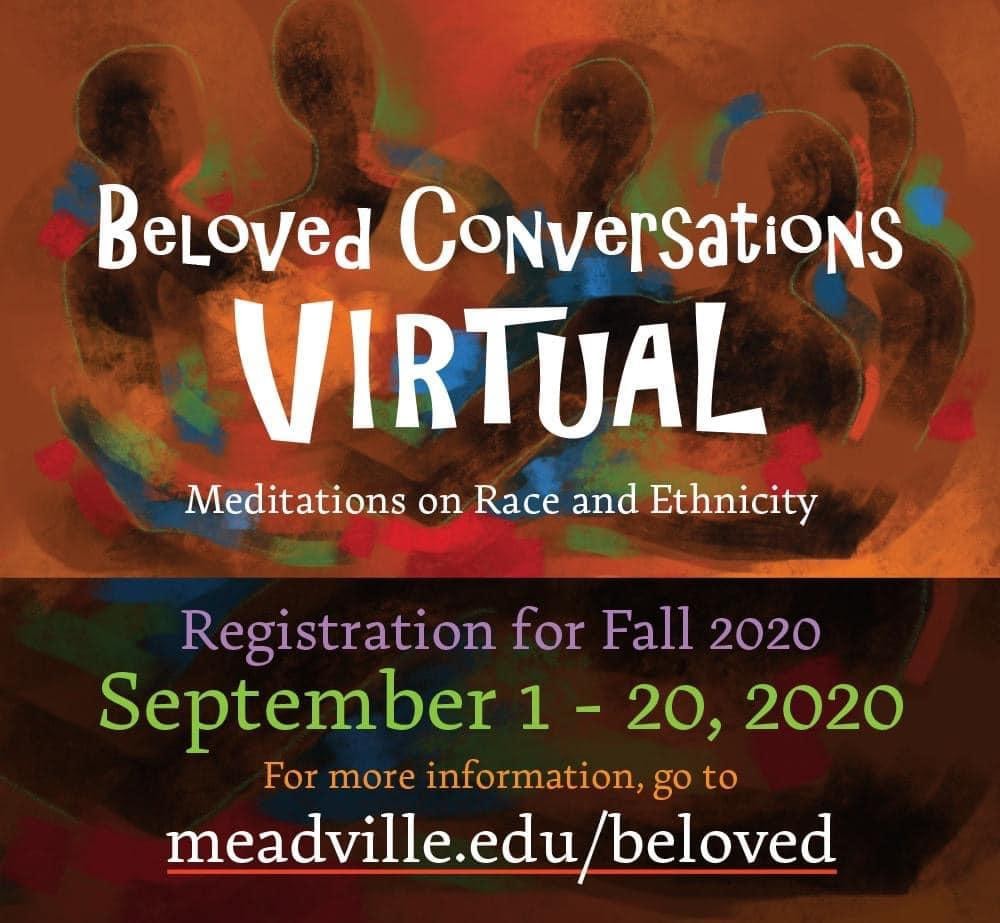 Beloved Conversations: Virtual
Beloved Conversations: Virtual
As an educational laboratory, the Fahs Collaborative is testing ways to meet urgent learning needs around faith formation. In that spirit, we are excited to announce Beloved Conversations: Virtual, which will be launched for the Fall 2020 church year!
Since our initial pilot of March 2011, Beloved Conversations curriculum developers have responded to the needs to learn how race and ethnicity shape our personal and collective lives and practices. Data from the experiences of over 150 congregations engaged in our program suggests that good learning was happening, as they reported they became:
- more courageous when engaging in cross-cultural dialogue
- more comfortable taking risks to communicate deeply held assumptions about race and ethnicity
- better equipped to sit with cultural differences
- more adaptable at dealing with different standards for worship, music, education
- more fluid translating personal communication styles and theological commitments to other preferences and traditions
- better able to link personal power to systematic oppressions
- more resilient when confronting the status quo
- more curious about personal, narrowly held assumptions
- better able to set aside issues of perfectionism and judgment when encountering different standards
Yet, even with these encouraging outcomes, we know that the long-term transformation of mono-cultural ways of thinking, feeling, and acting requires significant long-term support. In planning for a new Beloved Conversations: Virtual curriculum, we noticed some elements that are required to be added or focused on:
- More time: the interconnectedness of how race shapes a life requires more than eight, two-hour sessions to better understand its complexity.
- Making more room for the impact of racial socialization: how one’s social location informs how one thinks, feels, and relates to others differs significantly based on the racial/ethnic group to which one belongs.
- Access: smaller congregations find the costs of the curriculum too great an obstacle for consistent participation.
- Centering the needs of Black, Indigenous, and other People of Color (BIPOC): While the impact of racism is experienced by everyone, BIPOC pay a pernicious emotional, spiritual, and communal price to be part of a multi-racial community.
- Embodiment: noticing the sociological patterns of racial experience is important to understand, yet new ways to access the emotional legacy of racism in one’s head and body is needed.
- Grace: Releasing issues around imperfection—including peer pressure, shame, and guilt for past conflicts—plays a significant role in becoming a better race-conscious person/community.
- Unlearning minimization: even when conscious that racial frames are shaping one’s life, a great many participants work actively to minimize the importance of cultural differences in their lives, making interpersonal and community conversations about change especially daunting for those who are racially oppressed.
- Multigenerational aspects: conversations about race are family conversations, especially with children as young as 2-3 years old privileging white cultural ways of thinking and acting.
- Faith formation: strategies for the complexities of theology, emotional literacy, consciousness of identity development need to be more central to the curriculum.
- Set the bar high: we can articulate and expect a high level of learning, commitment, and rigor from our people and they will rise to the challenge.
Beloved Conversations: Virtual is being designed and offered for the 2020-2021 church year with these findings in mind. The new curriculum is organized in three “phases” that resonate with earlier versions but have vastly new features, mainly:
- A digital format that allows users to participate as individuals, while preparing themselves to do congregational and community-level systemic work
- Teaching and learning strategies and small group structures organized by racial/ethnic affiliation (often called “caucuses”), allowing differentiated learning for BIPOC as well as for white people
- Explicit resources developed to meet the intellectual, historical, and spiritual needs of people of color living in a world (and a religious community) that privileges white cultural norms
- Teaching and learning materials designed for ministers/seminarians, religious educators, musicians, and church administrators
To learn more about the program and to register, go to: https://www.meadville.edu/fahs-collaborative/fahs-curriculum-catalogue/beloved-conversations/
